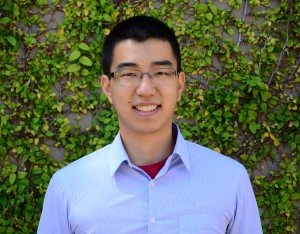Brain-machine Interface Design: From Neuroscience and Engineering to the Clinic
Speaker: Jonathan Kao
Affiliation: Ph.D. Candidate - Stanford University

Abstract: The goal of brain-machine interfaces (BMIs), also called motor neural prostheses, is to restore lost motor function and communication to people with motor neurological injury or disease, including paralysis and amyotrophic lateral sclerosis (ALS). These systems record neural signals from motor regions of the brain and decode them into control signals that guide prosthetic devices.
To be clinically viable, these systems must perform well and be robust, approaching levels of control of the native arm. I will present decoder algorithms for BMIs, evaluated in pre-clinical experiments with rhesus macaques, leading to the highest performing communication BMI to date. These algorithms have also been translated in clinical trials, resulting in state-of-the-art performance. Further, I will present a novel class of decoder algorithms that incorporates insights from basic motor neuroscience in principled ways. I show that this class of algorithms not only achieves higher performance than traditional BMI models, but can also be used to extend the useable lifetime (robustness) of BMIs by rescuing decoder performance when few neural signals remain. In this way, neuroscience can be used to beneficially inform neural engineering. Finally, I will discuss future research directions that I believe will be important for (1) gaining insights into neural circuits and their dynamics, (2) leveraging these insights, in conjunction with machine learning, to engineer higher performance neural prostheses, and (3) building new simulator tools that will allow engineers to more quickly design, optimize, and evaluate neural prostheses.
Biography: Jonathan Kao is a Ph.D. candidate in the Department of Electrical Engineering at Stanford University where he works in the Neural Prosthetic Systems Laboratory of Prof. Krishna Shenoy. He is also a Teaching Fellow at Stanford University, where he co-lectures EE124, a course in Neuroelectrical Engineering. His research interests lie at the intersection of neuroscience, machine learning, and the clinical translation of neural prostheses.
For more information, contact Prof. Dejan Markovic (dejan.ucla@gmail.com)
Date/Time:
Date(s) - Mar 16, 2016
10:45 am - 12:00 pm
Location:
EE-IV Shannon Room #54-134
420 Westwood Plaza - 5th Flr., Los Angeles CA 90095
